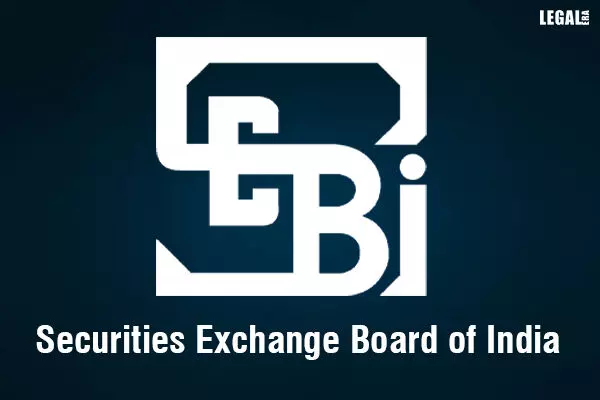- Home
- News
- Articles+
- Aerospace
- Agriculture
- Alternate Dispute Resolution
- Banking and Finance
- Bankruptcy
- Book Review
- Bribery & Corruption
- Commercial Litigation
- Competition Law
- Conference Reports
- Consumer Products
- Contract
- Corporate Governance
- Corporate Law
- Covid-19
- Cryptocurrency
- Cybersecurity
- Data Protection
- Defence
- Digital Economy
- E-commerce
- Employment Law
- Energy and Natural Resources
- Entertainment and Sports Law
- Environmental Law
- FDI
- Food and Beverage
- Health Care
- IBC Diaries
- Insurance Law
- Intellectual Property
- International Law
- Know the Law
- Labour Laws
- Litigation
- Litigation Funding
- Manufacturing
- Mergers & Acquisitions
- NFTs
- Privacy
- Private Equity
- Project Finance
- Real Estate
- Risk and Compliance
- Technology Media and Telecom
- Tributes
- Zoom In
- Take On Board
- In Focus
- Law & Policy and Regulation
- IP & Tech Era
- Viewpoint
- Arbitration & Mediation
- Tax
- Student Corner
- AI
- ESG
- Gaming
- Inclusion & Diversity
- Law Firms
- In-House
- Rankings
- E-Magazine
- Legal Era TV
- Events
- News
- Articles
- Aerospace
- Agriculture
- Alternate Dispute Resolution
- Banking and Finance
- Bankruptcy
- Book Review
- Bribery & Corruption
- Commercial Litigation
- Competition Law
- Conference Reports
- Consumer Products
- Contract
- Corporate Governance
- Corporate Law
- Covid-19
- Cryptocurrency
- Cybersecurity
- Data Protection
- Defence
- Digital Economy
- E-commerce
- Employment Law
- Energy and Natural Resources
- Entertainment and Sports Law
- Environmental Law
- FDI
- Food and Beverage
- Health Care
- IBC Diaries
- Insurance Law
- Intellectual Property
- International Law
- Know the Law
- Labour Laws
- Litigation
- Litigation Funding
- Manufacturing
- Mergers & Acquisitions
- NFTs
- Privacy
- Private Equity
- Project Finance
- Real Estate
- Risk and Compliance
- Technology Media and Telecom
- Tributes
- Zoom In
- Take On Board
- In Focus
- Law & Policy and Regulation
- IP & Tech Era
- Viewpoint
- Arbitration & Mediation
- Tax
- Student Corner
- AI
- ESG
- Gaming
- Inclusion & Diversity
- Law Firms
- In-House
- Rankings
- E-Magazine
- Legal Era TV
- Events
SEBI Issues Additional Requirements for the Issuers of Transition Bonds

SEBI Issues Additional Requirements for the Issuers of Transition Bonds
The Securities and Exchange Board of India (SEBI) has issued circular with respect to additional disclosures for issuance of transition bonds, a sub-category to check misallocation.
The market watchdog has directed companies to identify interim targets such as the amount they intend to reduce the emissions, project implementation strategy, technology for implementation, and the mechanism to oversee the utilisation of the funds raised through transition bonds.
Earlier on 2 February 2023, the revised definition of ‘green debt security’ was notified in the SEBI (Issue and Listing of Non-Convertible Securities) Regulations, 2021 and further on 6 February, 2023, SEBI had issued the revised disclosure requirements for such issuances.
‘Transition bonds’ is one of the sub categories of the revised definition of ‘green debt security.’
As per the SEBI (Issue and Listing of Non-Convertible Securities), transition bonds comprise of funds raised for transitioning to a more sustainable form of operations, in line with India’s Intended Nationally Determined Contributions.
With respect to Disclosure in the Centralised Database for corporate bonds SEBI prescribed that an issuer shall disclose the denotation in the Centralized Database for corporate bonds/ debentures by filling the denotation i.e., GB-T i.e., Others (Please specify) of point 10. i.e., Type of Instrument of Annex-XIV-A to Chapter XIV (Centralized Database for corporate bonds/ debentures) of the Operational Circular dated 10th August, 2021 and further the Depositories shall update the denotation i.e., GB-T as prefix in “instrument details” field in Centralized Database for corporate bonds/ debentures.
SEBI expressed that the additional requirements will facilitate transparency and informed decision making amongst investors, ensuring that the funds raised through transition bonds are not misallocated.
Stock exchanges have been directed to monitor such continuous disclosures.




